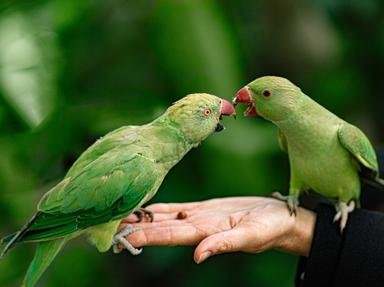Quiz Answer Key and Fun Facts
1. Through what body part do African grey parrots make their words and sounds?
2. The intelligence of African grey parrots is similar to which of the following stages in a human's life?
3. Emma loves to have lots of toys in her cage. Which type of wood is best for a perch?
4. Which of the following symptoms in African grey parrots can be caused by low calcium levels?
5. Which of the following considerations are not important in choosing Emma's cage?
6. If I were to bring you with me when I went to visit my brother, which of the following things is Emma most likely to do?
7. When Emma is sticking her beak in between my brother's fingers, what is she doing?
8. What colour are Emma's tail feathers?
9. Which of the following are known to have kept African grey parrots as pets?
10. When giving Emma a bath, which of the following should my brother add to the bath water?
Source: Author
spiritseeker
This quiz was reviewed by FunTrivia editor
crisw before going online.
Any errors found in FunTrivia content are routinely corrected through our feedback system.
